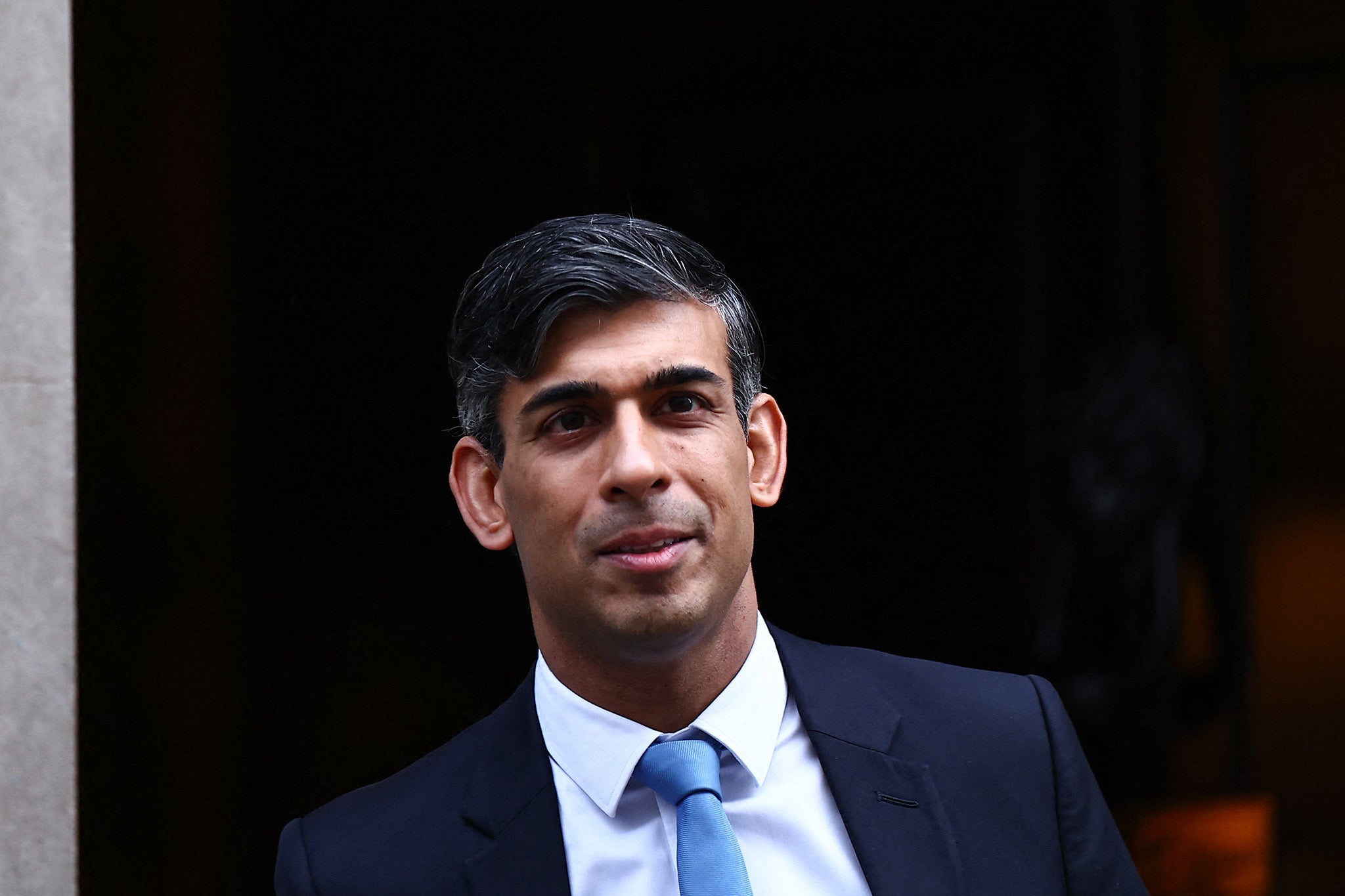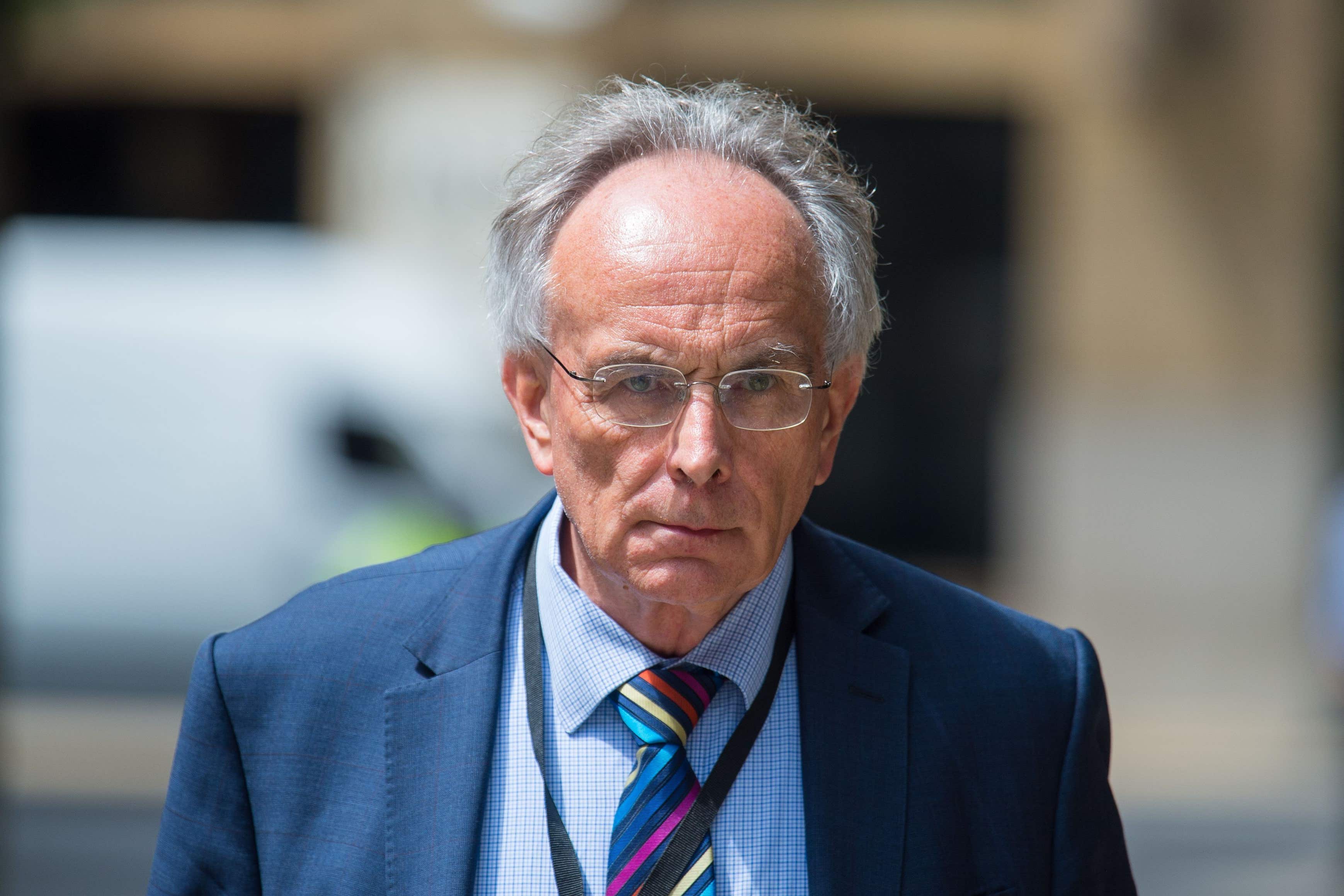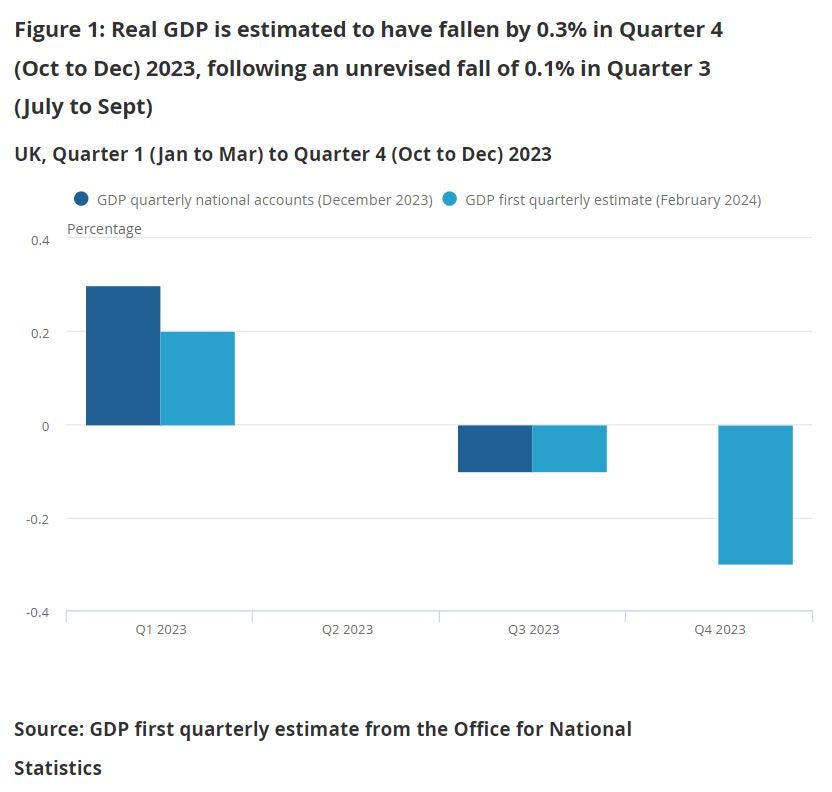Sunak braced for double poll blow as recession puts his economic plans ‘in tatters’
Labour taunt the prime minister that his promise to grow the economy is ‘in tatters’ as the UK slips into recession


Rishi Sunak faces setting a near 60-year record for by-election losses after official figures showed the UK economy has entered recession.
The Conservatives were dealt a heavy blow by worse-than-expected data which showed that the economy shrank in the final six months of last year.
Mr Sunak’s party will, meanwhile, have secured the largest number of defeats in a single parliament since the 1960s if voters reject the Conservatives in either the Northamptonshire constituency of Wellingborough or Kingswood, in Gloucestershire.
The seats are up for grabs after one former Tory minister was found guilty by investigators of bullying and sexual misconduct while another resigned in protest at Mr Sunak’s watering down of green commitments.
The prime minister’s hopes of holding them were dented as polls opened, when statistics showed the UK fell into recession last year.
Shadow chancellor Rachel Reeves dubbed it “Rishi’s recession” and said his promise to grow the economy was now “in tatters”.
While it was described as “technical” by some, because of the limited duration of the dip, Asda chairman Lord Rose said: “If it looks like a duck, it quacks like a duck… it’s a duck. It’s a recession. It doesn’t matter whether it’s a technical recession or not.”
The chancellor Jeremy Hunt blamed efforts to tackle high inflation and the recent run of interest rate rises, but insisted the economy was turning a corner.

However, in a second blow, Mr Hunt is understood to have been forced to scale back plans for more tax cuts in next month’s budget. He is understood to have told by the official spending watchdog on Wednesday night that he has less room than expected to reduce taxes.
Treasury officials are now considering cutting public spending by billions of pounds to fund pre-election tax cuts in next month’s budget, a move opponents say would load more austerity on to already struggling public services.
The revelation the UK is in recession led to increased pressure on the Bank of England to cut interest rates. The New Economics Foundation think tank said it was “no surprise” the UK had fallen into recession, “given this government’s mismanagement of the economy and the Bank of England’s panicked interest rate rises”.
The Conservatives are battling to hold on to what should be safe Tory seats in Wellingborough and Kingswood. Both have large Tory majorities, of the kind that Labour would normally struggle to overturn. But both seats have been hit by controversy while voters have used by-elections in recent months to punish the Tories.

In Wellingborough, the former Tory MP Peter Bone received a six-week suspension from the Commons after an inquiry found he had subjected a staff member to bullying and sexual misconduct.
The by-election was triggered after a “recall” petition of his constituents.
But controversially the Tory candidate in the election is Mr Bone’s partner, Helen Harrison.
Kingswood’s vote was triggered by the resignation of former minister Chris Skidmore in protest at the government’s plans to boost North Sea oil and gas drilling.
With majorities of more than 18,000 and 11,000 respectively, both should be safe Tory seats.
But Labour requires smaller swings to win both than it has secured in a number of recent by-elections.
The vote comes just days after a bombshell poll suggested the Tories would lose three-quarters of their seats at the general election.
It follows a turbulent week for Labour, however, who were forced to dump their candidate in another by-election, in Rochdale, after he claimed Israel had allowed the Hamas massacre that killed 1,200 people.
The Tories also faced calls from business leaders not to focus on tax cuts in a bid to win votes. Lord Rose told the chancellor they should not be his “priority” and also warned that inflation coming down to the 2 per cent target is “wishful thinking”.

As voters went to cast their votes in the by-elections, figures showed gross domestic product (GDP) fell by 0.3 per cent in the fourth quarter of last year, following a decline of 0.1 per cent in the previous three months, meaning the country tumbled into recession at the end of last year.
The figures also revealed that growth overall in 2023 was just 0.1 per cent.
Economists said the recession was likely to be short-lived, but the figures are difficult for Mr Sunak, who has vowed to grow the economy as one of his five priorities.
Mr Hunt said it had been the “right thing to do” to prioritise tackling inflation.
He added: “The underlying picture here is an economy that is more resilient than most people predicted, inflation is coming down, real wages have been going up now for six months.
“If we stick to our guns, independent forecasters say that by the early summer we could start to see interest rates falling and that will be a very important relief for families with mortgages.”
Martin McTague, from the Federation of Small Businesses, urged ministers to “foster an environment where small firms can grow, to the overall benefit of the economy, and to put this period of stagnation and shrinkage behind us once and for all.”
Liberal Democrat leader Ed Davey said that “Rishi’s recession” has “savaged the British economy by decimating growth and leaving families to cope with spiralling prices.”
“Years of Conservative chaos and a revolving door of Conservative chancellors has culminated in economic turmoil,” he added. “It’s hardworking Brits forced to pick up the tab for this mess, through high food prices, tax hikes and skyrocketing mortgage bills.”
General secretary of the Unite union Sharon Graham said more public spending cuts would be “an excuse to load more austerity onto public services that are already on their knees”.
Join our commenting forum
Join thought-provoking conversations, follow other Independent readers and see their replies
Comments
Bookmark popover
Removed from bookmarks